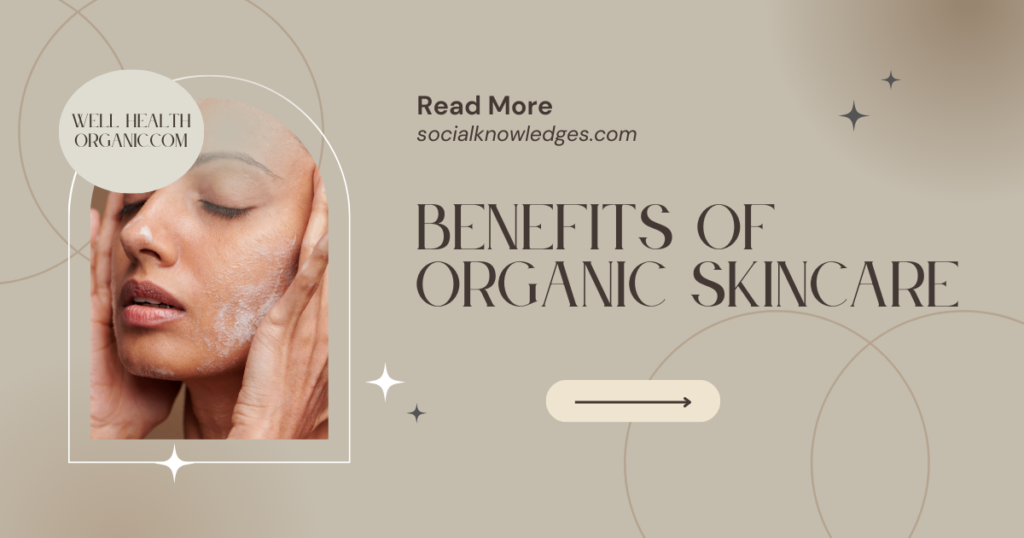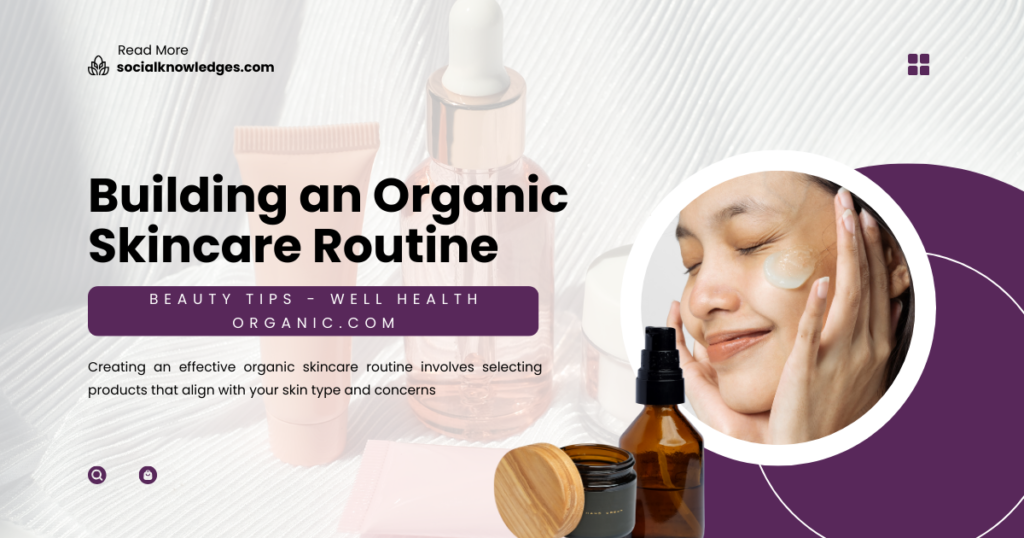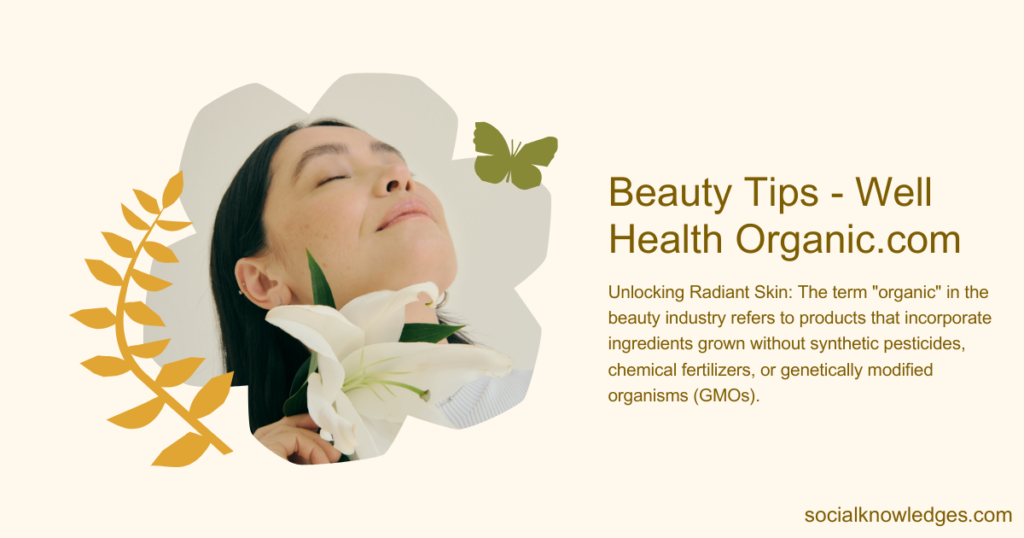In the pursuit of a healthier, more sustainable lifestyle, many of us are turning to organic products for our beauty routines. The term “organic” in the beauty industry refers to products that incorporate ingredients grown without synthetic pesticides, chemical fertilizers, or genetically modified organisms (GMOs). At Well Health Organic, we believe that embracing organic Beauty Tips – Well Health Organic.com not only enhances your skin’s health but also contributes to a more environmentally friendly lifestyle. In this article, we’ll delve into the benefits of organic skincare, address common pain points, and provide actionable insights to help you achieve radiant, well-nourished skin.
What Makes Skincare Organic?
Organic skincare products are formulated with ingredients that are cultivated using natural methods, avoiding harsh chemicals like parabens, sulfates, and artificial fragrances. For a product to be labeled as organic in the U.S., it must contain at least 95% organic ingredients, as certified by the U.S. Department of Agriculture (USDA). This certification ensures that the products adhere to strict standards, making them a safer choice for both your skin and the environment.
Benefits of Organic Skincare

Gentler on the Skin
Organic skincare is particularly beneficial for individuals with sensitive skin. These products are less likely to cause irritation or allergic reactions due to their natural and plant-based ingredients. For instance, organic aloe vera and chamomile are known for their soothing properties, making them ideal for calming irritated skin.
Reduced Exposure to Harmful Chemicals
Conventional skincare products often contain synthetic chemicals that have been linked to health concerns. Organic skincare minimizes exposure to these substances, providing a safer alternative for those who prioritize their health and well-being. By choosing organic products, you reduce the risk of absorbing harmful chemicals through your skin.
Environmental Impact
Beyond personal benefits, organic skincare supports sustainable farming practices that promote biodiversity and reduce chemical runoff into water sources. This not only helps protect wildlife but also contributes to a healthier ecosystem. For example, organic farming methods like crop rotation and cover cropping enhance soil fertility and reduce erosion.
Common Pain Points and Solutions

- Lack of Regulation: One of the challenges in the beauty industry is the lack of strict regulations around labeling organic products. Some products may claim to be organic with only a small percentage of organic ingredients. To avoid this, always check the ingredient list and look for certifications like USDA Organic.
- Effectiveness Concerns: A common myth is that organic skincare is less effective than conventional products. However, modern organic formulations have shown significant results in addressing various skin concerns, from anti-aging to acne-prone skin.
- Higher Cost: Organic products are often perceived as more expensive. While this can be true, the long-term benefits to your skin and the environment often outweigh the initial cost. Consider transitioning gradually by replacing one product at a time.
Building an Organic Skincare Routine

Creating an effective organic skincare routine involves selecting products that align with your skin type and concerns. Here’s a simple step-by-step guide:
- Cleansing: Start with a gentle organic cleanser that maintains your skin’s natural moisture barrier.
- Toning: Use a toner that balances your skin’s pH and prepares it for subsequent products.
- Moisturizing: Apply a rich, organic moisturizer to nourish and hydrate your skin.
- Serums and Treatments: Incorporate serums or spot treatments for specific issues like dark circles or hyperpigmentation.
Tips for Transitioning to Organic Skincare
- Gradual Transition: Swap one conventional product at a time to ease your skin into the change.
- Patch Testing: Always test new products on a small area to avoid adverse reactions.
- Consult a Dermatologist: Especially if you have specific skin concerns or allergies.
Conclusion
Embracing organic Beauty Tips – Well Health Organic.com from Well Health Organic is not just about enhancing your skin’s health; it’s also a step towards a more sustainable lifestyle. By choosing organic skincare products, you’re not only nurturing your skin with natural ingredients but also contributing to environmentally friendly practices. Whether you’re addressing sensitive skin, reducing chemical exposure, or supporting sustainable farming, organic skincare offers a holistic approach to beauty and wellness.
FAQs
Q: What does “organic” mean in skincare?
Ans: Organic skincare refers to products made with ingredients grown without synthetic pesticides, chemical fertilizers, or GMOs.
Q: Are organic skincare products more effective?
Ans: While there’s a myth that organic products are less effective, modern formulations have shown significant results in addressing various skin concerns.
Q: How do I transition to organic skincare?
Ans: Start by replacing one conventional product at a time, and always patch-test new products to ensure compatibility with your skin.
Q: What are the environmental benefits of organic skincare?
Ans: Organic skincare supports sustainable farming practices, reduces chemical runoff, and promotes biodiversity, contributing to a healthier environment.
Read More: Wellhealthorganic organic pet food benefits | Wellhealthorganic.com : eat your peels | The Ultimate Guide to Naturaplug.com


